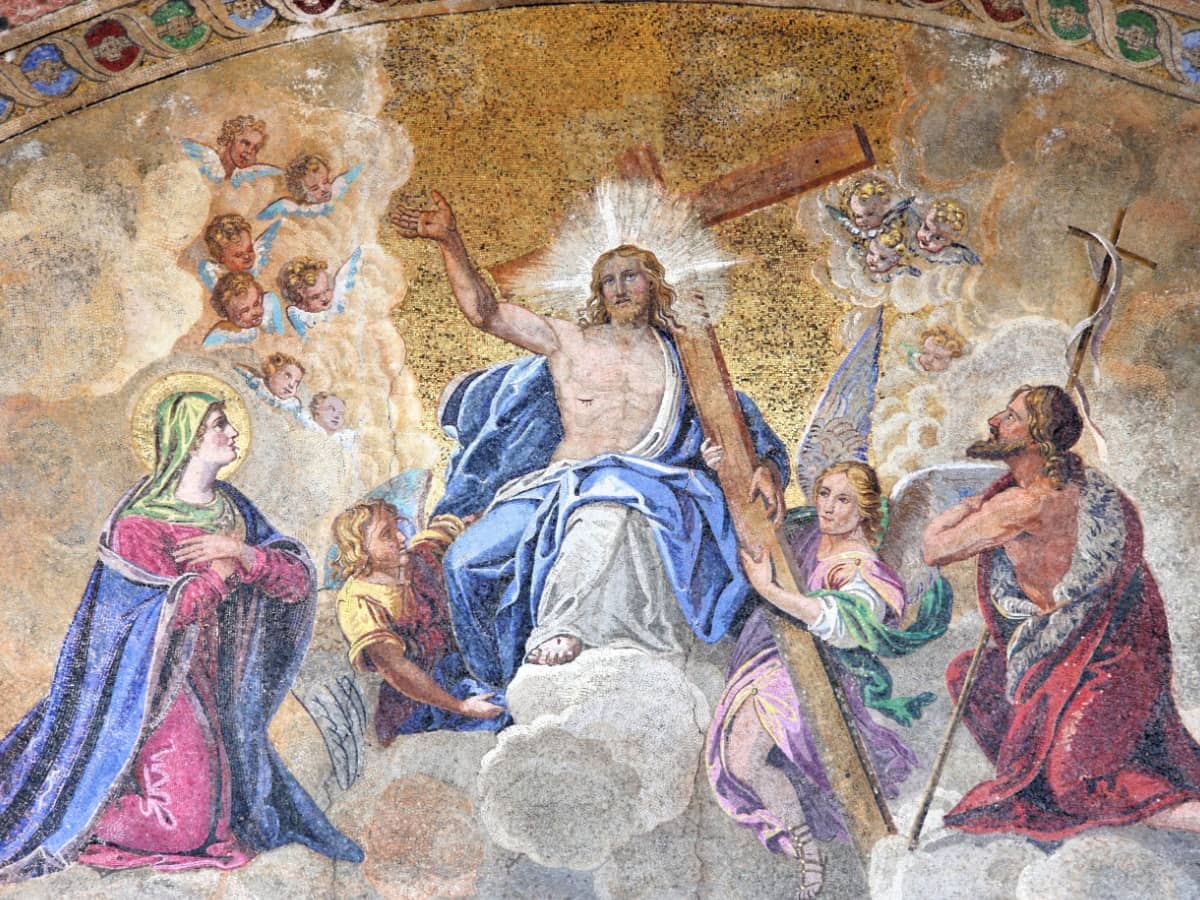Who was Paul?
Paul, whose original name was Saul, took the name familiar to us after his conversion to Christianity. Paul never met Jesus during his brief years of ministry. Nevertheless, he was perhaps Christianity's most important early convert and the first major missionary to preach the Christian gospel to non-Jewish people.
When and where did he live?
Scholars think Saul was was born around 10 C.E. in Tarsus, in modern-day Turkey. Unlike Jesus' other early followers, who were mostly Palestinians, Paul was a Roman citizen, which implies he was at least moderately well-off, and which granted him a certain respect wherever he went in the empire. He was a tentmaker by trade. After his conversion, he traveled extensively through most of the Mediterranean world. He died between 62 and 67 CE.
Was Paul one of the 12 apostles?
No, he was not. However, the New Testament records that Paul did interact with many of the original disciples, especially in Jerusalem.
Was Paul Jewish?
Most scholars believe so, though they have argued about his commitment to Judaism both before and after his conversion to Christianity. Pauline writings indicate that he was raised Jewish and became a Pharisee (Romans 11:1, Phil 3:5). Acts says that in his younger days, Saul was involved in persecuting Jewish followers of Jesus because he believed they were heretics (Acts 22:4-5).
What made him stop?
According to Acts 9, 22 and 26, a conversion experience. Saul was traveling to the city of Damascus when he saw a bright light and heard Jesus' voice saying "Saul, Saul, why do you persecute me?" He fell from his horse, blinded. Days later, after a visit from the Christian disciple Ananias, he recovered his eyesight and began to preach Jesus' gospel.
Where did he go as he preached?
At the start of his ministry, Paul spent much of his time in Jerusalem. Later, he traveled through Asia Minor, to Greece, and Rome.
What made him different from other early disciples?
When Paul started preaching, Jesus' followers were Jews who believed that Jesus had revealed himself as God's promised Messiah to his chosen people. They focused their ministry on sharing this remarkable news with other Jews. Paul made the radical departure of preaching to non-Jews (Gentiles), saying that, through Jesus, God had extended salvation to Gentiles.
Paul's Writings
How much of the New Testament did Paul write?
Thirteen letters, or epistles, of the New Testament begin with a formula like "Paul, servant of God, to [recipient's name]." However, some liberal scholars believe that as many as half of these letters might not have been written by Paul. Many, like 2 Thessalonians, may have been from the "School of Paul"--either dictated by Paul or written by people who came after him and shared his theology.
Which letters are we sure he wrote?
Of the 13 epistles originally attributed to him, liberal scholars believe that at least seven were definitely written by Paul: 1 Thessalonians, Galatians, 1 & 2 Corinthians, Philippians, Philemon, and Romans. Few liberal scholars believe Paul wrote 1 & 2 Timothy, Ephesians, and Titus. There is no consensus on who wrote Colossians and 2 Thessalonians.
Paul's Theology
What are Paul's most important contributions to Christian theology?
One is justification by faith, the concept that humans are saved from sin by believing in Jesus. Jewish tradition focused on ritual observations and living according to Jewish law. Paul created a theological framework for understanding that Jesus' death and resurrection triggered a fundamental change in humanity's relationship with God--a relationship in which faith, rather than behavior, was the central element.
This idea is sometimes described as "faith alone"--in Latin, "Sola fides." Justification by faith was one of the main points of difference raised by Martin Luther and other reformers that led to the Protestant break with the Roman Catholic Church.
What is justification?
The means by which humans are justified, or cleansed from sin and saved, by God.
What are "works"?
In the first century, "works" often referred to fulfilling Jewish ritual obligations. Paul felt that Jesus' coming made such "works" unnecessary for Gentiles, though they still had value for early Jewish Christians.
By the time the debate reignited in Martin Luther's day, "works" referred in part to purchasing indulgences-a kind of certified forgiveness for sins. Initially, indulgences were earned through meritorious behavior, but over time it became possible to earn them through monetary contributions to the church, like funding church construction. Eventually, buying and selling of indulgences became corrupted. Luther's attacks on "works" were in large part motivated by his opposition to this corrupt system.
The contemporary debate over the importance of "works" is about neither Jewish ritual observance nor indulgences. When theologians use the term "works" today, they mean good deeds, like helping the poor. The question active today is what the relationship between good works and faith is.
Are Protestants and Catholics on opposing sides in the "faith vs. works" debate?
They used to be, to some extent. In 1999, a committee of theologians hammered out a joint Lutheran-Catholic declaration on the subject, reconciling what had previously seemed to be opposing views. However, the questions debated still have relevance in the lives of Christians today.

